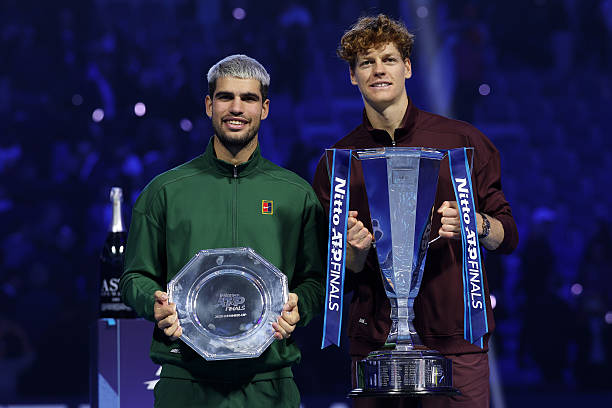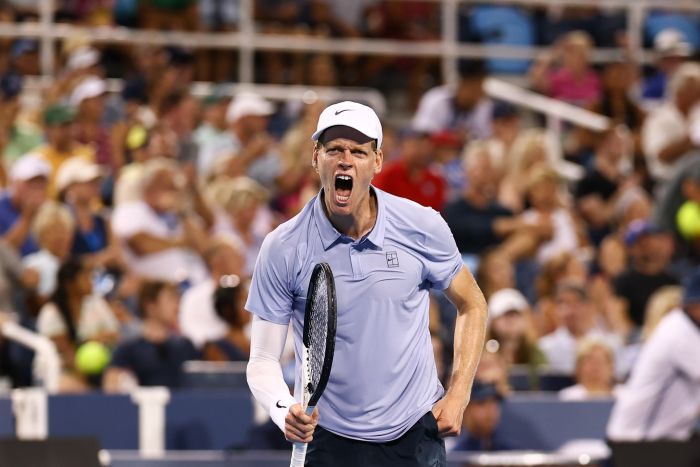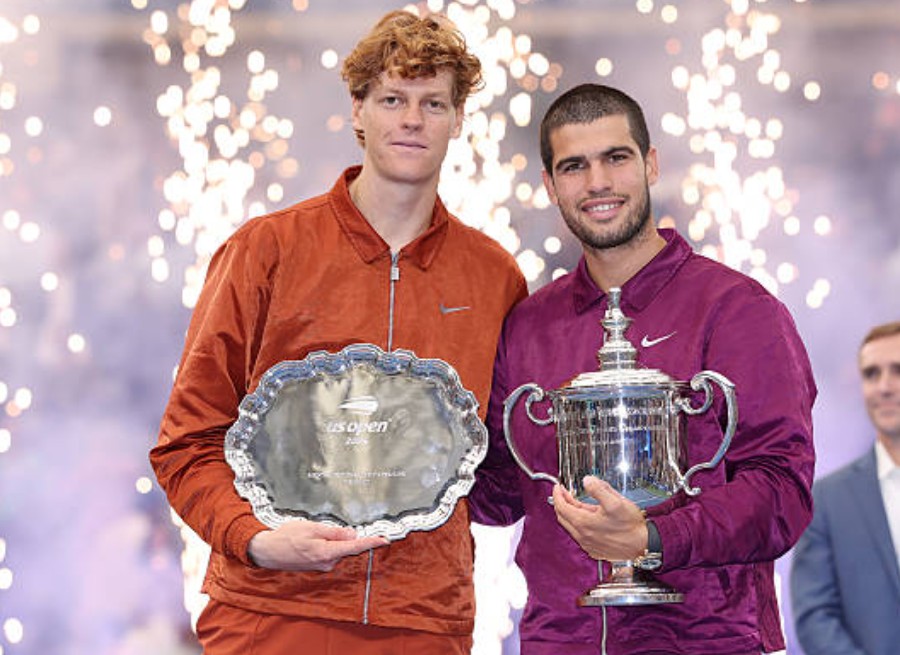Jannik Sinner, a work in progress? Sounds ridiculous, but it is the case. And knowing Sinner, his incredible humility and his desire to turn over every rock in the name of becoming a better tennis player every single day, it probably will be forever.
Case in point: the last two months.
The 24-year-old and his intrepid team identified weaknesses in his blistering game after this year’s US Open and immediately got to work to ensure that Sinner could deliver more potency. Truth be told, Sinner has no choice, given the serious consequences he would suffer if he didn’t keep adding weapons in his ongoing arms race with world No.1 Carlos Alcaraz.
(He has world-beating Carlos Alcaraz to thank for his “identified weaknesses”, because no one else seemed to be able to push the high-flying Italian to his limits in a season that saw him win two majors, reach the final at all four majors, and close the season on a 31-match indoor hard court heater).
His ever vigilant team, headed by Darren Cahill and Simone Vagnozzi, identified some chinks in the Italian’s armor and drew up a well-documented plan, endorsed by Sinner, to introduce better serving and more unpredictable play down the stretch of the 2025 season.
The results were… emphatic.
“For sure after US Open we saw some issues, especially with the serve,” Vagnozzi said after Sinner took out Alcaraz 7-6(4), 7-5 on Sunday at the ATP Finals. “We changed the motion. We changed the rhythm. He served really well from Shanghai till here. Today in the second set he struggle a little bit.

“We changed a lot of things after US Open. We are lucky to have Jannik that is really fast to improve, to understand the changes and everything.”
Vagnozzi was quick to add that the plan has not been seen to fruition as of yet – look for more subtle yet effective changes in 2026.
“Also we try to make new shots, new tactics also,” he said. “I will not tell you what we try to do,” the Italian said with a smile. “For sure our goal also in the next season is to be more aggressive than what we are now.”
Sinner too was pleased with his adaptive measures, and the always humble 24-year-old adds that he still has a way to go.
“[My game] has evolved in a positive way, of course, especially the serving,” he said. “From the back of the court, it’s been a bit more unpredictable. It worked well, or at least better. I do believe that I still have margins where I can play better at times.”

His coach Darren Cahill, who may or may not be a part of the team in 2026 (a different story for a different day, stay tuned), says that he believes Sinner still has plenty of room for improvement in areas like his return game and his performance on clay.
“As far as Jannik’s game is concerned, I think his game transitions well to all surfaces, whether it’s slow, fast or medium,” said Cahill. “Obviously clay is going to be a big target for us next year, to try to keep improving his clay court game. We’ll keep working on that.
“We still feel like, as good as Jannik returns serve, he’s got areas in that part of the game where he can improve. That’s the really interesting thing and exciting thing in working with somebody as good as Jannik, is there are parts of his game we still feel can get a lot better.”
It was reported that this would be Cahill’s last season as Sinner’s coach in January, but by Wimbledon the pair had already started reeling back the announcement. There was a bet at Wimbledon, and if Sinner won he was reportedly told that he could decide on whether or not Cahill would return to the fold in 2026.
Asked about it again on Sunday, Cahill deferred, saying “We haven’t spoken yet, so…”

But the legendary Aussie sounds like a man very much invested in Sinner’s future when he speaks.
“I think it’s a little bit what I spoke about here a week ago, that we want him to be playing his best tennis when he’s 28, 29, 30 years of age. Hopefully we’re setting the plan and platform for him to be able to do that in a few years.”
Sinner seems excited to spend December implementing new facts of his ever expanding repertoire. He will need to if he wants to keep up with Alcaraz, who won four of six matches against him this year, and two of three major finals.
“As I always say, December is very important for me as a player and as a team because you connect better because you don’t have the pressure of the tournament, the rush to go from one side to the other.
“It is very important not only because of the work ethic but to connect the whole team even better and understanding each other even better.”

























